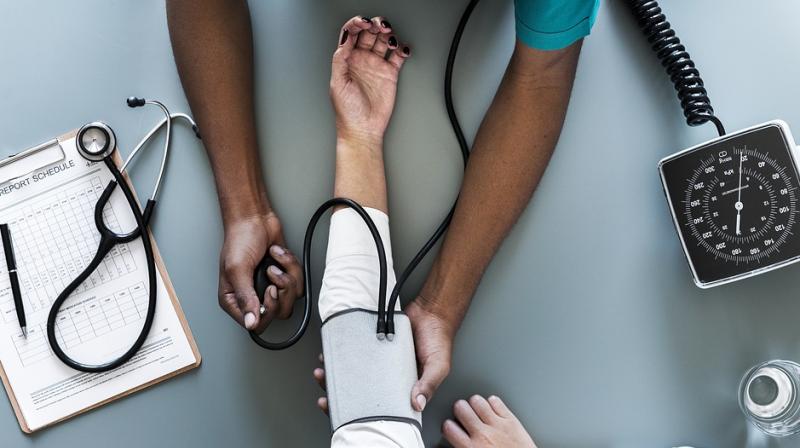Universal health coverage is key to improving health and well-being: WHO
The theme of this year's World Health Day is Universal Health Coverage: everyone, everywhere.

New Delhi: The World Health Organisation (WHO) on Wednesday called upon countries in its South-East Asia Region to step-up efforts towards universal health coverage, to provide quality health services to all people when and where they need them, without having to suffer financial hardship.
"Universal health coverage is central to improving health and well-being - a fundamental human right. It is also imperative for a country's well-being as healthier populations create more productive economies," said Dr Poonam Khetrapal Singh, Regional Director of WHO South-East Asia, on the occasion of the World Health Day celebrated on April 7, every year.
800 million people spend more than 10% of their household budget on healthcare for themselves, a sick child or other family member https://t.co/f8Lr2dipsf #HealthForAll pic.twitter.com/PMbOkdJE0j
— WHO (@WHO) April 5, 2018
The theme of this year's World Health Day is Universal Health Coverage: everyone, everywhere.
Universal health coverage (UHC) is a flagship programme of WHO in the Region since 2014. In recent years, all Member States have taken several initiatives which have helped improve access to essential health services. However, challenges remain.
Nearly half of the WHO South-East Asia Region's population still lacks full coverage of essential health services. Significant inequalities persist. Poorer people, and those in rural areas, have lower access than richer people, and those living in urban areas.
Some 65 million are pushed into extreme poverty, mainly due to paying out-of-pocket for medicines, especially for non-communicable diseases such as heart disease, diabetes etc, and other common ailments.
Dr Khetrapal Singh said more efforts are needed to increase human resources for health, enhance skills of health workers and aid staff retention in rural and hard-to-reach area, to ensure quality health services are available for everyone, everywhere.
Health services must be planned around the needs of the people, she said, highlighting that by 2020 more of the Region's population will be over 60 than under-five. Hence, ageing population, reversing the growing burden of non-communicable diseases, and early detection and timely treatment of infectious diseases, should be the focus of frontline services.
Increasing access to quality and affordable essential medicines is also fundamental. Paying out-of-pocket for medicines is the leading cause of financial hardship from health care spending in this region, the Regional Director said.
UHC includes the full spectrum of essential, quality health services, from health promotion to prevention, treatment, rehabilitation, and palliative care.
Ensuring universal health coverage will help strengthen health security by making it easier to contain the spread of infectious diseases and respond effectively to natural disasters that the WHO South-East Asia Region is prone to.
Countries in the Region have committed to monitor who is not being covered by health services and why, and review annually progress on UHC and SDG3 health goal until 2030.
UHC is feasible and can be achieved progressively, sometimes with rapid, ground-breaking strides; sometimes via gradual though crucial reform, the Regional Director said.
"On the World Health Day, we must reflect on and resolve to work towards achieving UHC, to change the lives of millions of people across the Region and beyond. We must continue to strive for health coverage that is for all people everywhere and which leaves no one behind," said Dr Khetrapal Singh.

